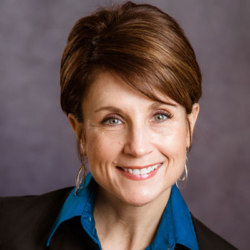Keep consumers in the driver’s seat on regulation
In the spirit of #ThrowbackThursday, I thought I would highlight a 1978 article from the Foundation for Economic Education (FEE), “The Consumer’s Role,” as it reminds me of an issue the Platte Institute has been working on for the past 3 years.
It’s no secret that team members at the Platte Institute are huge supporters of free markets. Allowing entrepreneurs to bring their products and services to the marketplace results in a greater variety of choices. Successful entrepreneurs can earn a living doing what they love. When they need to expand their business, jobs are created.
According to FEE, “the free-market economy caters to the consumer.” The “fate” of the goods and services on the market are determined each time a consumer chooses one product or service over another. Every dollar spent on a product or service is the equivalent of an economic “yes” vote in its favor. Unfortunately, there are special interests that fear the free-market and the competitiveness that comes with it. They favor government intervention which tends to erode the free market’s reason for being – the earning of a profit and a feedback mechanism to know what consumers want and need.
Inevitably, there will be a few bad actors that enter the free market. Luckily, the presence of things like Google reviews, Yelp reviews and good old-fashioned word of mouth help to keep those bad actors in check. If someone purchases a “lemon” or feels they’ve received poor customer service, they likely will spread the word and not support that business again.
In Nebraska, special interests in the massage therapy industry have decided to use government intervention to keep a special segment of entrepreneurs out. They claim to “protect the public.” In Nebraska, practicing the ancient art of reflexology without a massage therapy license can earn you a felony conviction. Reflexology is an ancient Eastern medicinal practice involving the application of specific pressure using the hands, thumb, and fingers to reflex points on the hands, feet, or ears to provide relief from pain and stress. It’s been around for centuries.
Most states do not regulate reflexology, but 9 states, including Nebraska, license the practice of reflexology under massage therapy practice laws despite the availability of private certification.
To obtain a massage therapy license in Nebraska, one must complete 1000 hours of coursework, which is the highest in the nation. This comes at a cost of thousands of dollars. Less than 5% of that coursework is geared towards reflexology instruction. Time and expense are significant opportunity costs in terms of lost income for would-be entrepreneurs.
Why should the state force someone to pay for educational programs that don’t meet their educational needs and professional goals, especially when private reflexology certification at a fraction of the time and cost would? For citizens of Nebraska who want to obtain a license to drive their personal automobile, it would be like requiring them to first complete commercial driver license (CDL) training.
When it comes to health and well-being, society is becoming increasingly interested in treatment modalities outside of conventional western medicine. Consumers may pursue CAM – complementary and alternative medicine for different reasons. For some, they are hoping to lessen their risk of chronic disease. For others, it’s because conventional medicine alone is not providing them with adequate relief from their ailments.
Why are we allowing special interests to use the government to eliminate competition, eliminate the availability of choice and take consumers out of the driver’s seat? Let consumers choose whether they want the services of a state licensed massage therapist or a privately certified reflexologist, not the government.
This is just one such issue regarding entrepreneurs and consumer choice we are tackling at the Platte Institute. I’ll elaborate on more issues like this in the coming weeks.
